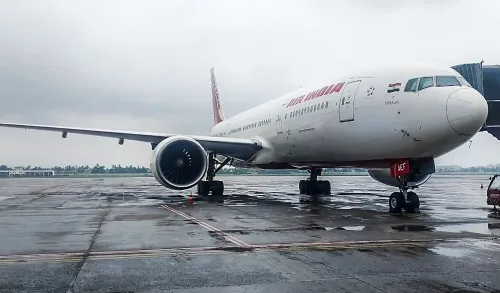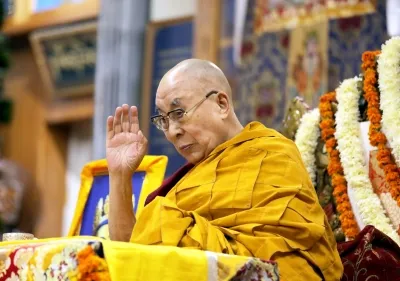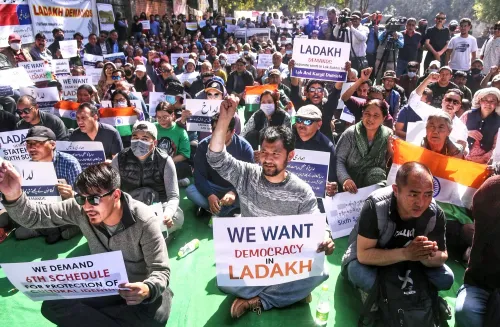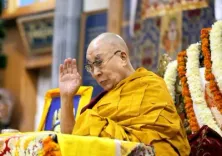Is Trump’s ego driving the US tariff increase on Indian goods?
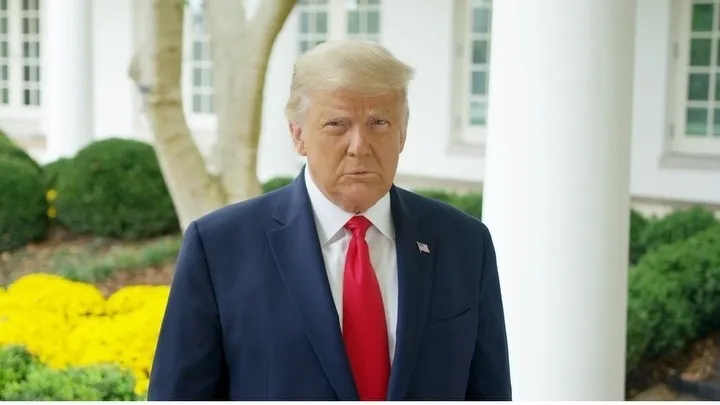
Synopsis
Key Takeaways
- The tariff is perceived as a personal reaction from Trump.
- India's refusal to credit Trump has soured relations.
- The EU’s energy imports highlight hypocrisy in global trade.
- Trump's portrayal as a peacemaker is contradicted by India’s narrative.
- India buys Russian oil for economic stability.
New Delhi, Sep 4 (NationPress) The 50 percent punitive tariff imposed by the US on Indian goods is increasingly perceived as stemming from President Donald Trump's wounded ego, triggered by New Delhi's refusal to validate his assertion of brokering a ceasefire with Pakistan following Operation Sindoor. An article in the London Daily suggests, “Trump’s tariff is as much about displaying power as it is about economic interests. The irony is notable. While India is criticized for purchasing Russian oil, EU nations imported €21.9 billion in Russian fossil fuels last year—surpassing the €18.7 billion they provided in aid to Ukraine. The EU has sought to lessen its reliance on Russia since the onset of the Ukraine conflict, yet the figures remain elevated.”
“Is this truly about energy ethics—or is it merely signaling in a changing global order, where alliances, trade, and even climate issues are evolving? Perhaps ego plays a role,” the article continues.
It points out that the relationship between the two nations deteriorated when India declined to acknowledge Trump for “halting” the recent flare-up between India and Pakistan.
Additional media sources indicate that Trump is specifically targeting India because it explicitly stated that he had no involvement in negotiating the ceasefire with Pakistan after Operation Sindoor. India clarified that, following successful precision strikes that eliminated terrorist camps and damaged critical air bases deep within Pakistani territory, Islamabad sought a ceasefire, which New Delhi accepted as Operation Sindoor achieved its objectives.
This narrative contradicts Trump’s portrayal of himself as a peacemaker who has resolved numerous global conflicts since taking office.
On the contrary, Pakistan has been endorsing this narrative, proposing Trump’s name for the Nobel Peace Prize as part of its efforts to strengthen ties with Washington.
The London Daily also notes, “The situation became even more complex when Pakistan recommended nominating Trump for the Nobel Peace Prize, commending his supposed role in the ceasefire. India, predictably, distanced itself from the celebration. Trump, who has frequently suggested he deserved the Nobel, now finds himself in a scenario that may signify the final fracture in a previously amicable relationship.”
President Trump has also indicated that the 25 percent additional tariff is being applied as sanctions against India for acquiring Russian oil, aiming to pressure Moscow into agreeing to a peace settlement regarding Ukraine.
In the meantime, India has reiterated that its acquisition of Russian oil serves both national and global interests. These transactions have ensured lower prices for Indian consumers and prevented international oil prices from skyrocketing, which would impose a severe economic strain on all nations. In fact, the justification for the US permitting India to purchase Russian oil was to maintain global prices in check.
Interestingly, while China imports more oil from Russia than India, the Trump administration has not imposed similar punitive tariffs on the Asian economic powerhouse.

